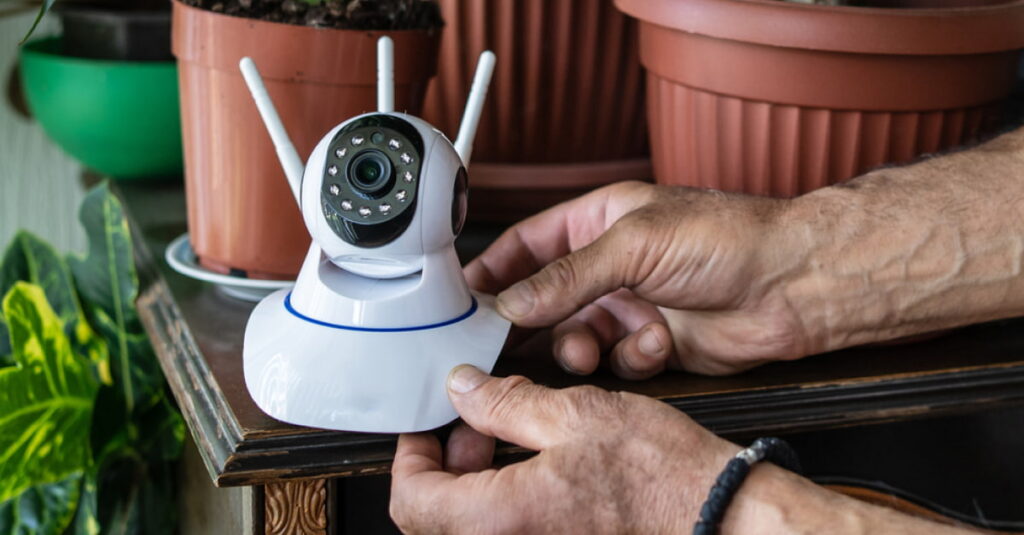CHICAGO, IL – When families entrust a nursing home with the care of their loved ones, they expect a safe environment where residents are treated with respect and dignity. Unfortunately, nursing home abuse remains a serious concern. Surveillance cameras have become an increasingly valuable tool in identifying and proving abuse in these settings, offering families a sense of accountability and security.
This blog explores how surveillance cameras can help in proving nursing home abuse, the legal considerations surrounding their use and how they can contribute to justice for victims.
Understanding Nursing Home Abuse
Nursing home abuse can take many forms, including:
- Physical Abuse: Hitting, pushing or restraining residents inappropriately.
- Emotional Abuse: Verbal threats, humiliation or isolating residents.
- Neglect: Failing to provide adequate food, hygiene or medical care.
- Financial Exploitation: Misusing a resident’s funds or property without consent.
Spotting the signs of abuse — such as unexplained injuries, changes in behavior or a decline in physical health — can be challenging, particularly if the victim is unable to communicate effectively. This is where surveillance cameras can make a difference.
How Surveillance Cameras Help Prove Abuse
- Providing Visual Evidence
Surveillance cameras offer indisputable visual evidence of what happens within the facility. This can be crucial in exposing neglectful behavior or physical abuse that might otherwise be difficult to prove. For example, footage showing a staff member improperly handling a resident can directly support claims of abuse. - Monitoring Staff Behavior
Cameras can deter staff from engaging in abusive practices, knowing their actions are being recorded. For families, having surveillance in place can provide peace of mind, ensuring their loved one is receiving proper care. - Capturing Neglect
In cases of neglect, video footage can document instances where staff failed to respond to call lights, skipped feeding times or ignored a resident’s basic needs. This evidence can be presented in court or during settlement negotiations. - Documenting Environmental Conditions
Abuse isn’t always physical; environmental neglect, such as unsanitary conditions or lack of safety measures, can also harm residents. Cameras can capture these unsafe conditions, strengthening a case for neglect.
Legal Considerations for Surveillance Cameras in Nursing Homes
While surveillance cameras can play a critical role in uncovering abuse, their use comes with legal and ethical considerations:
- Illinois Laws on Surveillance in Nursing Homes
In Illinois, the Authorized Electronic Monitoring in Long-Term Care Facilities Act allows residents and their families to install surveillance cameras in their rooms. This law helps protect residents from abuse while balancing privacy concerns. - Consent Requirements
- The resident or their legal representative must provide written consent to install a camera.
- If the resident has a roommate, their consent is also required.
- Privacy Concerns
Cameras should only record the resident’s living space, ensuring they don’t infringe on the privacy of others. Facilities are also prohibited from retaliating against residents who choose to use surveillance. - Costs
Families are typically responsible for purchasing and maintaining the surveillance equipment. However, the investment is often worthwhile when it comes to safeguarding a loved one’s well-being.
Using Surveillance Footage in a Legal Case
Surveillance footage can be instrumental in proving abuse or neglect in a nursing home abuse lawsuit. Here’s how:
- Evidence Collection: Footage can corroborate witness statements and medical reports, building a stronger case.
- Strengthening Negotiations: Visual proof of abuse can compel nursing homes to settle cases quickly and fairly.
- Courtroom Impact: In cases that go to trial, video evidence can be a powerful tool to sway a jury.
An experienced attorney can guide you on how to gather and present surveillance evidence effectively while ensuring compliance with legal standards.
Challenges of Using Surveillance Cameras
Although cameras are a powerful tool, they aren’t without limitations including blind spots, tampering and legal hurdles. Working with an experienced nursing home abuse attorney can help you navigate these challenges.
How Dinizulu Law Group Can Help
If you suspect your loved one is a victim of nursing home abuse, the team at the Dinizulu Law Group is here to help. We understand the emotional toll these cases take and are committed to holding negligent facilities accountable.
Our attorneys have experience handling cases involving surveillance footage, ensuring the evidence is used effectively to fight for justice. Contact us today at (312) 384-1920 for a free consultation or visit our website to learn more about your legal options.



